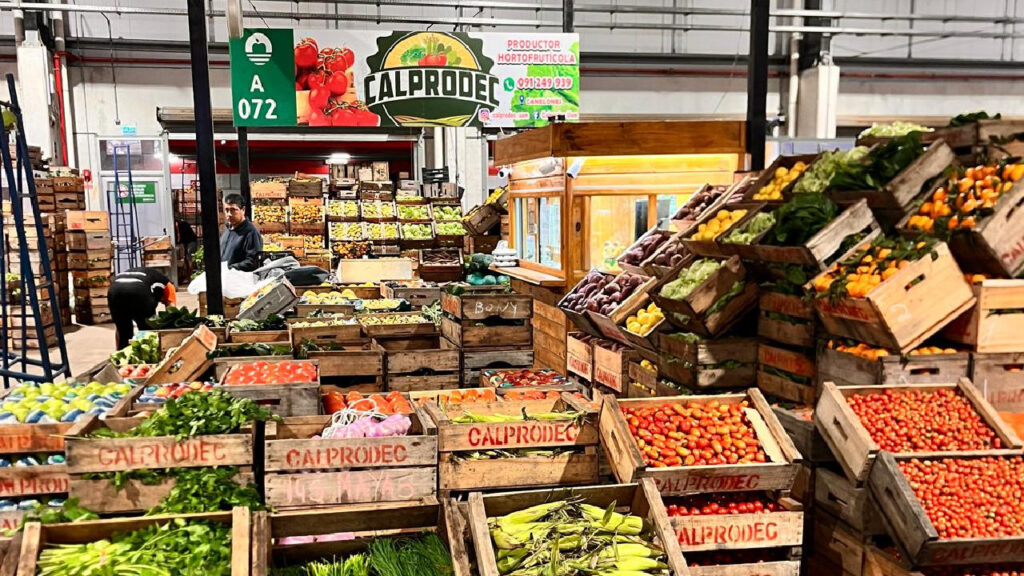In the fertile area of western Canelones, identified with fruit and vegetable production, a group of producers is leading the AGROTIC project, a pioneering initiative that promises to change the local agricultural landscape. It is presented by the Cooperativa Agraria Limitada de Productores de Canelones (CALPRODEC), which is at the forefront of integrating digital technologies to improve efficiency and sustainability in family farming production.
Innovation and development in family farming
At a recent session of the Rural Development Board of Western Canelones presented his ambitious project AGROTIC focused on adapting digital solutions to overcome the training and commercial barriers faced by local agricultural producers. This initiative not only seeks to modernize agricultural practices, but also to strengthen the competitive capacity of small producers in an increasingly demanding market.
Martin Rivara who played a crucial role in the conception of the project, explained the evolution from the initial idea to the practical implementation. "We started with the idea of improving the traceability of our products, but soon realized we needed a more complete solution", Rivara pointed out. Thus was born the proposal to use QR code technology to allow consumers to track each stage of the process, from harvesting to marketing.
The system of QR codes implemented by CALPRODEC not only ensures product transparency and quality, but also optimizes the cooperative's internal processes. Each QR code contains detailed information on product origin, harvest dates and post-harvest handling methods, providing consumers with assurances about the freshness and provenance of the food they purchase.
Rivara stressed the importance of digital training within the project. "We are committed to training our members in the effective use of ICTs, ensuring that everyone has the necessary skills to make the most of these technological tools."he said. This initiative not only seeks to reduce the digital divide in rural areas, but also to promote equal opportunities between men and women within the cooperative.
Strategic collaborations
The success of AGROTIC has been made possible thanks to strategic partnerships with key institutions such as the Metropolitan Agrifood Unit (UAM) and the National Food Institute (INDA). These partnerships have provided the necessary technical and logistical support for the implementation and expansion of the project, ensuring that it meets the standards required by government agricultural support programs.
In addition, CALPRODEC has worked in close collaboration with these entities to ensure that the project AGROTIC not only benefit its members, but also contribute to the sustainable development of the agricultural community in Canelones. Martín Rivara emphasized that the company is committed to "to continue to improve and share our experiences with other producers and cooperatives in Uruguay".
Driving productivity and trade transparency
One of the cornerstones of the project is the implementation of an advanced traceability system using QR codes. Martin Rivara representative of CALPRODEC explained how this system not only guarantees the quality and freshness of the products from harvest to the final consumer, but also optimizes logistics and marketing processes. "Each QR contains vital information, such as the date of harvest, whether the product was refrigerated and details about the producer", said Rivara. This transparency not only strengthens consumer confidence, but also facilitates the internal management of the cooperative.
In addition to improving traceability, AGROTIC is training CALPRODEC members in the use and management of ICTs, focusing on closing digital divides in rural communities. This inclusive approach not only promotes gender equality, but also strengthens farmers' technical capacities, enabling them to access broader and more competitive markets.
As AGROTIC continues to expand, CALPRODEC has plans to broaden its impact and reach in the region. This includes actively promoting the project in various forums and events, as well as exploring new opportunities for collaboration with key players in the agricultural and technology sector. "We want to continue to innovate and explore new ways to strengthen our cooperative and our community", concluded Rivara.



